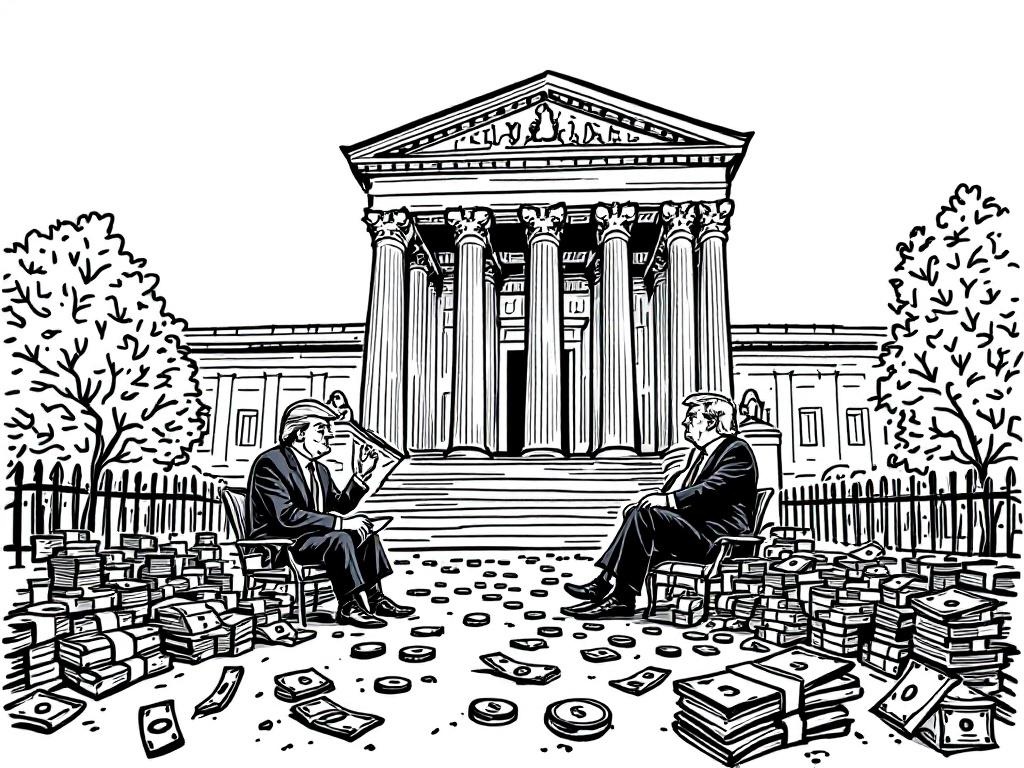Supreme Court to Decide on Trump's Tariff Authority Amid Global Economic Impact

Washington, D.C., Wednesday, 5 November 2025.
The U.S. Supreme Court is reviewing the legality of Trump’s tariffs, potentially reshaping presidential power over trade. A ruling against Trump could lead to significant economic shifts and tariff refunds.
Background on Trump’s Tariffs
The tariffs in question were initially announced by President Donald Trump on April 2, 2025, during an event dubbed ‘Liberation Day.’ These tariffs were imposed under the International Emergency Economic Powers Act (IEEPA) of 1977, a law allowing the U.S. president to regulate international transactions during a national emergency. However, the implementation of tariffs under IEEPA marks an unprecedented use of this authority, which has traditionally been used for sanctions rather than tariffs [5][7].
Economic and Political Implications
The tariffs have had a considerable impact on various sectors of the U.S. economy. For instance, Learning Resources, a toy seller, projected a cost increase from $2 million in 2024 to $14 million in 2025 due to tariffs. This legal battle has also triggered a broader discussion about the limits of presidential power, as a ruling against Trump could potentially lead to refunds of billions of dollars collected in tariffs, affecting an estimated $90 billion worth of import taxes already paid [2][4].
Supreme Court’s Role and Potential Outcomes
The Supreme Court’s decision, expected by January 2026, could redefine the balance of power between the executive and legislative branches. If the court rules against Trump, it may prevent the future use of IEEPA for imposing such sweeping tariffs. Conversely, a ruling in favor of Trump could expand presidential authority, allowing more unilateral economic measures under the guise of national emergencies [1][3].
Global Repercussions and Business Concerns
Globally, the Supreme Court’s decision could influence international trade relations. The European Parliament, for instance, is considering a trade agreement with the U.S. that hinges on the outcome of this case. Meanwhile, businesses like Learning Resources and Cooperative Coffees are bracing for possible negative outcomes, with some companies already experiencing disruptions and increased operational costs due to the tariffs [1][6].
Sources
- www.npr.org
- www.bbc.com
- www.cnbc.com
- www.scotusblog.com
- www.theguardian.com
- www.cbsnews.com
- www.axios.com